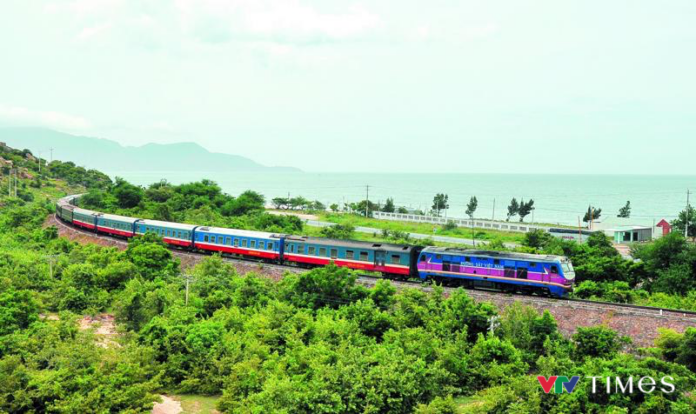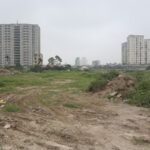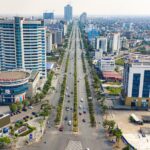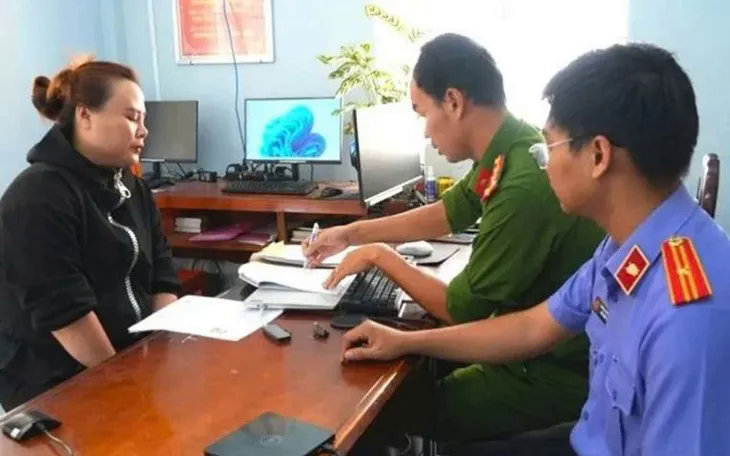The Ministry of Construction has recently submitted to the Government a draft of the amended Railway Law, featuring a separate chapter on investment with a host of favorable policies to spur breakthrough development in the national railway system.
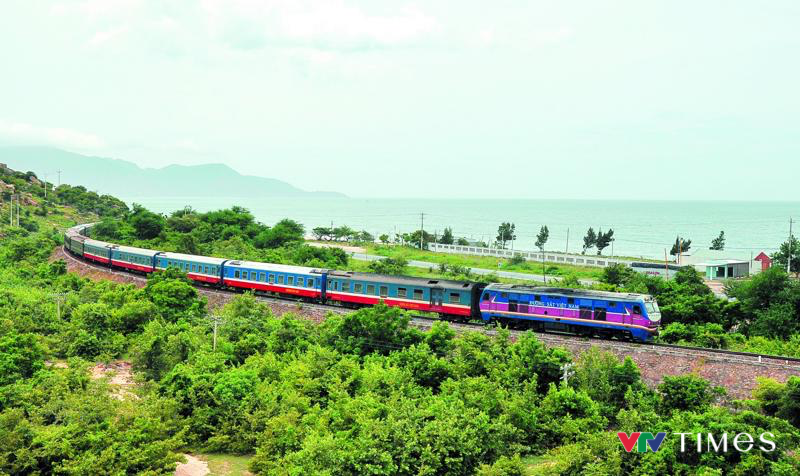
Source: Vietnam Railways Corporation
According to the Ministry of Construction, the draft law has undergone a review by the National Assembly’s Committee on Science, Technology, and Environment and was presented by the Minister of Construction at the National Assembly meeting on May 27, 2025. Additionally, the Ministry has prepared a draft resolution of the National Assembly on special mechanisms and policies for railway development, following the directives of the Government and the Politburo.
A notable feature is the integration of the mechanisms and policies from the draft resolution into a separate chapter within the draft law, ensuring a unified legal framework. The new draft law comprises four chapters and 84 articles, including supplementary and refined incentive policies previously applied to specific projects.
In the chapter on general provisions, credit incentives have been added for railway business organizations operating in economically and socially challenging areas, including those with particularly difficult conditions.
Moreover, enterprises investing in and developing the railway industry, as well as those engaged in railway infrastructure business, are entitled to corporate income tax incentives. They also benefit from import tax exemptions on goods and equipment that cannot be produced domestically or do not meet project technical standards, along with exemptions for materials and components used in the manufacture of railway equipment and spare parts.
The chapter on railway construction investment focuses on planning, investment capital, investment procedures, land clearance, industry development, and human resources. It emphasizes the utilization of land funds in the vicinity of stations to generate financial resources for railway reinvestment and empowers provincial People’s Committees to decide on technical standards and land use within transit-oriented development (TOD) areas.
Another set of policies aims to streamline investment procedures and delegate more power to local authorities and decision-making levels. Accordingly, projects can be divided into component projects without fully complying with the provisions of the Law on Construction.
Urban railway projects, including TODs, are exempt from the procedures for appraisal and approval of investment policies as stipulated in the current Investment Law. Provincial People’s Committees are authorized to adjust projects in various cases where changes occur from the initial approval.
The draft law also permits sole-source procurement for critical railway packages, especially in projects involving the construction of industrial complexes and technology transfer. In certain situations, investors are exempt from complying with competitive bidding regulations for contractors preparing feasibility reports, technical designs, and more.
Institutionalizing Resolution 68 of the Politburo, the draft law encourages organizations and individuals to invest in railway projects with non-state capital. The State will guarantee the entire cost of compensation, support, and resettlement. However, to ensure national defense and security, investors are not allowed to transfer projects or post-investment assets to foreign investors.
Upon the expiration of the operating period, investors must hand over the assets to the State without reimbursement. To prevent corruption and wastefulness, the draft law clearly defines the monitoring responsibilities of state agencies. The State Audit Office is tasked with auditing the total investment estimate before approval.
To ensure the progress of key projects, the Ministry of Construction proposes that some provisions of the draft law take effect early. Specifically, the provisions on railway construction investment will come into force on July 1, 2025, while the remaining provisions will take effect on January 1, 2026.
Additionally, the proposal includes the delegation of authority from the Government to the Minister of Construction in crucial tasks such as approving the railway network planning, deciding on rail connections with foreign countries, and managing national infrastructure assets, among others.
The amended Railway Law draft demonstrates a strong commitment to establishing a breakthrough legal corridor for the development of Vietnam’s railway sector, encompassing incentive mechanisms, investment attraction, administrative procedure reform, and enhanced supervision. This strategic move aims to materialize the goal of building a modern and synchronized railway network that meets sustainable transport demands in the long term.
‘Capital Sinkhole’: $56 Million Down the Drain in Hanoi Housing Project, Vietnam’s Former Construction Pioneer Plagued by Financial Woes, Retreats with a 39% Profit Downgrade
As of March 31, 2025, Licogi has invested over VND 1,363 billion in the Thinh Liet project, accounting for 30.1% of its total assets. This makes it the largest long-term ongoing project currently on the company’s books.
“The Key” to Unlocking Automotive Localization
“The automotive industry’s localization ambitions hinge on a robust ecosystem of supportive industries. To turn this dream into a reality, a comprehensive set of policies is needed to foster the growth of these ancillary industries. It’s time to shift gears and accelerate the development of a vibrant and self-sustaining automotive supply chain ecosystem in our country.”
The Billion Dollar Resort: Unveiling the Mastermind Investors Behind the Vân Đồn Project
The People’s Committee of Quang Ninh Province has just approved a colossal investment project for an integrated tourism, entertainment, and premium resort complex, along with a golf course and residential area in Monbay Van Don. This ambitious venture boasts a staggering total investment of over VND 24,883 billion.
Great News for Hai Phong and Hai Duong Residents
The residents of Hai Phong are in for a treat as a slew of affordable housing projects are currently underway in the city. With these developments, homeownership dreams are about to become a reality for many.

